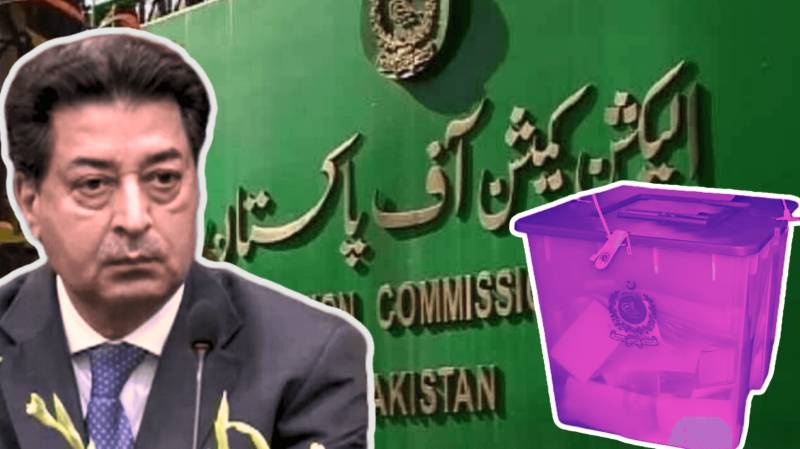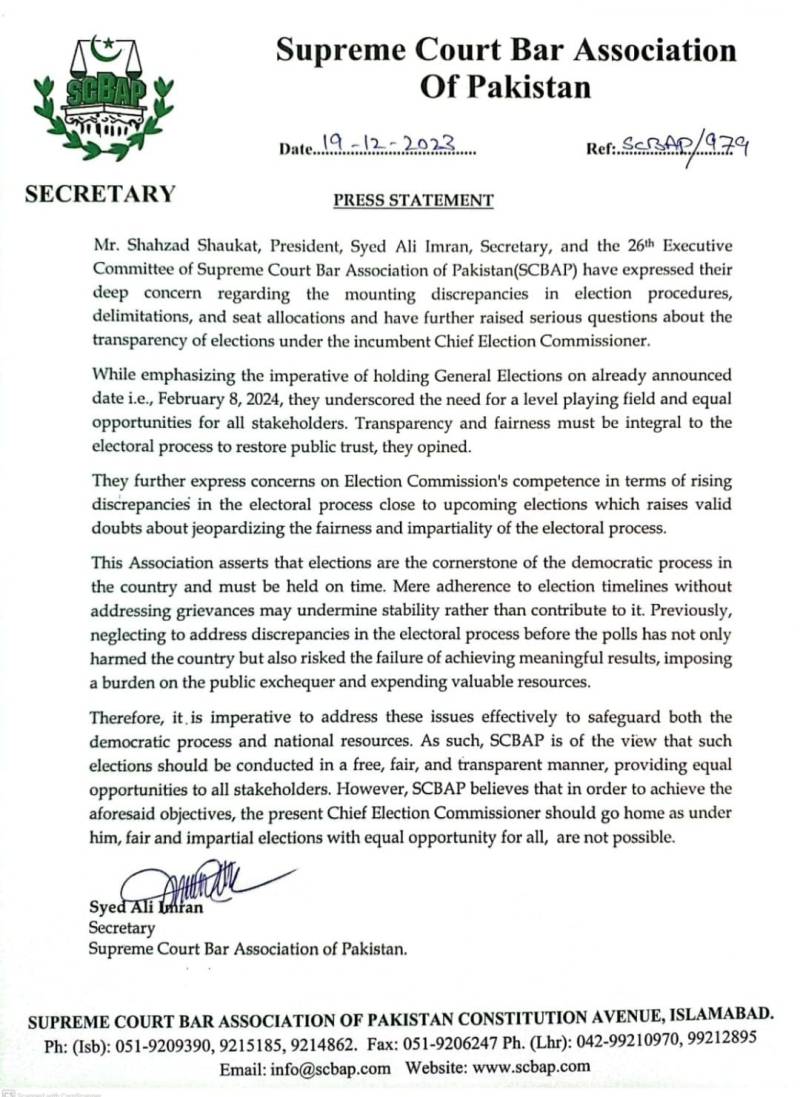
Chief Election Commissioner (CEC) Sikandar Sultan Raja on Tuesday came under fire from two of the country's top body of lawyers, which expressed their lack of confidence in his abilities to ensure the conduct of free, fair, and impartial elections with equal opportunity for all.
On Tuesday, the apex body of lawyers in the country, the Pakistan Bar Council (PBC) and a body of senior lawyers, the Supreme Court Bar Association (SCBA), issued strongly worded statements against Raja, with the latter going as far as to demand the CEC's resignation.
In its statement, PBC Executive Committee Chairman Hassan Raza and Vice-Chairman Haroon-ur-Rashid expressed serious concerns over the conduct of the Election Commission of Pakistan (ECP), adding that general elections could not be conducted in a free and fair manner with CEC Raja at the helm.
They asserted there was a crucial need for general elections to proceed as planned on February 8, 2024.
In this regard, they emphasised the need for all political parties and independent candidates to be afforded a level playing field and equal opportunities, ensuring transparency and fairness in the electoral process.
"However, they have expressed their serious concerns over the conduct of the CEC of Pakistan regarding election procedures, delimitations, and seat allocations and highlighted the growing perception that, in the presence of the incumbent CEC, elections cannot be conducted freely and transparently," a press statement issued by PBC read.
To substantiate their point, they pointed to discrepancies in seat allocations. As an example, they noted how two (02) National Assembly seats have been allocated to the CEC's native district of Jehlum, which has a population of approximately 1.382 million. At the same time, the Hafizabad District, which has a population of around 1.32 million, has been allocated just one (01) seat.
"A similar imbalance is observed in the allocation of seats for District Rawalpindi," the PBC noted.
Despite having a lesser population when compared to the Gujranwala Division, an additional seat has been allocated, raising questions about the transparency of the electoral process.
It is evident that the conduct of the CEC raises serious doubts about the integrity of the general elections, presenting an environment that appears to lack transparency entirely, the PBC argued.
The PBC said it cannot turn a blind eye to such critical matters and stressed that the Supreme Court of Pakistan, as the highest Constitutional Court, take notice of these discrepancies instead of endorsing every act of the CEC.
"The PBC firmly believes that the primary objective is not merely holding elections but conducting them in a free, fair, and transparent manner, providing equal opportunities to all stakeholders."
The PBC added that it would soon convene an all-Pakistan representative convention to formulate and announce a line of action and date for a lawyers' movement in consultation with the Supreme Court Bar Association of Pakistan (SCBAP).
"The aim is to ensure the cause of free, fair, and transparent general elections, which is not possible in the presence of the incumbent Chief Election Commissioner of Pakistan, as it seems he has different codes for every political party or individual."
SCBA seeks resignation of CEC
The Supreme Court Bar Association of Pakistan on Tuesday demanded the resignation of the Chief Election Commissioner.
"SCBAP believes that in order to achieve the aforesaid objectives, the present Chief Election Commissioner should go home as, under him, fair and impartial elections with equal opportunity for all are not possible," said SCBA President Shahzad Shaukat in a press statement issued on Tuesday.
He cited mounting discrepancies in election procedures, delimitations and seat allocations, apart from raising the issue of transparent elections being held under the incumbent CEC.
The SCBA also raised questions on the competency of the CEC, as it stressed the importance of holding elections on time.
"Mere adherence to election timelines without addressing grievances may undermine stability rather than contribute to it," the statement added.


